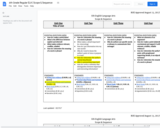
6th Grade Regular English Language Arts: Course Scope & Sequence.
- Subject:
- English Language Arts
- Material Type:
- Full Course
- Provider:
- Liberty Public Schools
- Date Added:
- 07/11/2022

6th Grade Regular English Language Arts: Course Scope & Sequence.
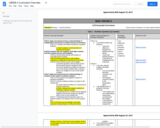
6th Grade Regular Math: Course Scope & Sequence.
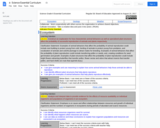
6th Grade Regular Science Scope & Sequence
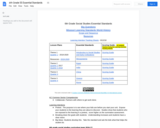
6th Grade Regualr Social Studies Scope & Sequence
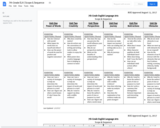
7th Grade Regular English Language Arts: Course Scope & Sequence.
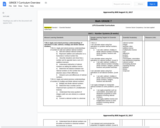
7th Grade Regular Math: Course Scope & Sequence.
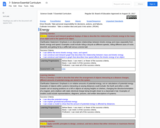
7th Grade Regular Science Scope & Sequence
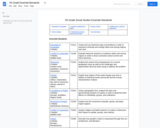
7th Grade Regualr Social Studies Scope & Sequence
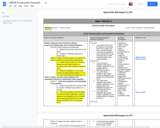
8th Grade Regular Math: Course Scope & Sequence.
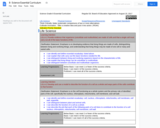
8th Grade Regular Science Scope & Sequence
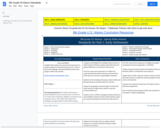
8th Grade Regualr Social Studies Scope & Sequence

This is a free, foundational online learning series for any teacher and educator interested in the groundbreaking world of artificial intelligence (AI) and its transformative potential in education. Partners Code.org, ETS, ISTE and Khan Academy are offering engaging sessions with renowned experts that will demystify AI, explore responsible implementation, address bias, and showcase how AI-powered learning can revolutionize student outcomes. Join us on this journey of exploration and empowerment, and unlock the future of teaching with and about AI.
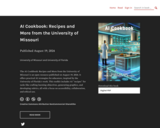
The AI Cookbook: Recipes and More from the University of Missouri is an open resource published on August 19, 2024. It offers practical AI strategies for educators, inspired by the University of Florida's work. This toolkit includes AI "recipes" for tasks like crafting learning objectives, generating graphics, and developing rubrics, all with a focus on accessibility, collaboration, and ethical use.
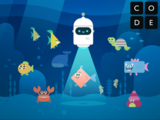
Computer science is about so much more than coding! Learn about AI, machine learning, training data, and bias, while exploring ethical issues and how AI can be used to address world problems.
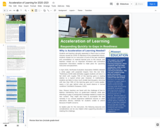
Acceleration of Learning- Responding Quickly to Gaps in Learning
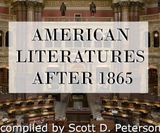
This work was created as part of the University Libraries’ Open Educational Resources Initiative at the University of Missouri–St. Louis.
A web version of this text can be found at https://umsystem.pressbooks.pub/ala1865/.
This book is an anthology of American Literatures After 1865, a new revision of the open educational resource entitled Writing the Nation: A Concise Introduction to American Literature 1865 to Present. It contains works that have been newly introduced to the public domain and provides direct links to reading materials that can be borrowed for free from Archive.org.
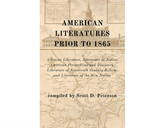
This work was created as part of the University Libraries’ Open Educational Resources Initiative at the University of Missouri–St. Louis.
A web version of this text can be found at https://umsystem.pressbooks.pub/alpt1865/.
This anthology of American Literatures Prior to 1865, is organized chronologically into four units, focusing on Colonial Literature, Literature of Native American Perspectives and Discovery, Literature of Nineteenth Century Reform, and Literature of the New Nation. It includes introductions to the many authors included to enhance the reader's contextual understanding of the chosen texts. This anthology is essential reading for any student or scholar of Early American literature.
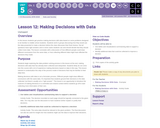
In this lesson students get practice making decisions with data based on some problems designed to be familiar to middle school students. Students work in groups discussing how they would use the data presented to make a decision before the class discusses their final choices. Not all questions have right answers and in some cases students can and should decide that they should collect more data. The lesson concludes with a discussion of how different people could draw different conclusions from the same data, or how collecting different data might have affected the decisions they made.
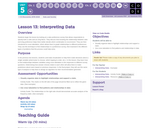
Students begin the lesson by looking at a cake preference survey that allows respondents to specify both a cake and an icing flavor. They discuss how knowing the relationship between cake and icing preference helps them better decide which combination to recommend. They are then introduced to cross tabulation, which allows them to graph relationships to different preferences. They use this technique to find relationships in a preference survey, then brainstorm the different types of problems that this process could help solve.
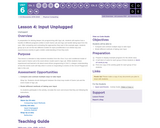
In preparation for delving deeper into programming with App Lab, students will explore how a handful of different programs written in both Game Lab and App Lab handle taking input from the user. After comparing and contrasting the approaches they saw in the example apps, students group up to act out the two different models for input (conditionals in an infinite loop and asynchronous events) to gain a better understanding of how they work.